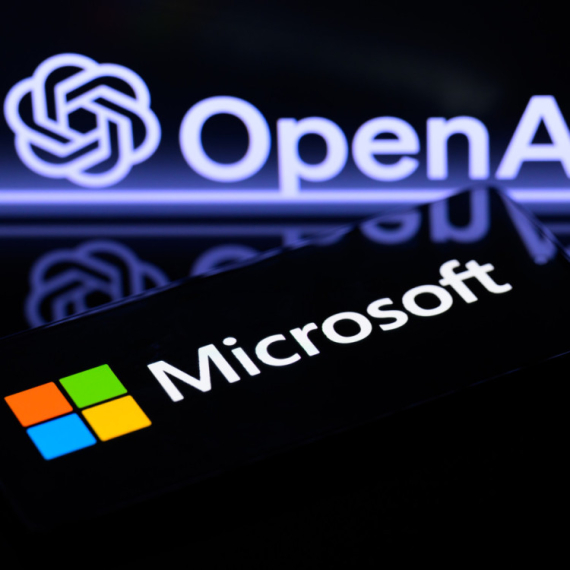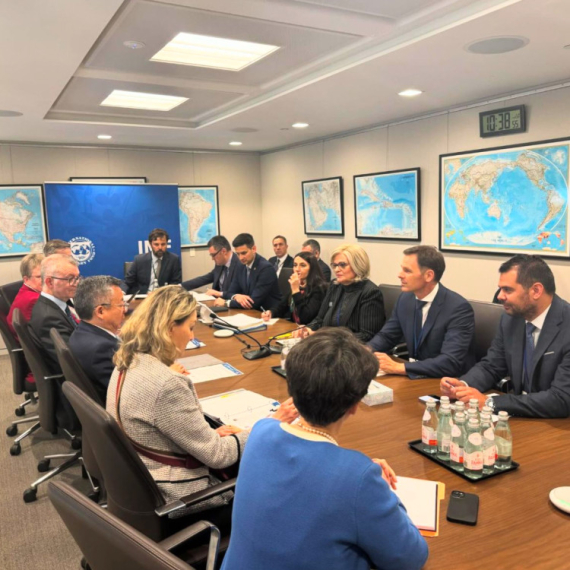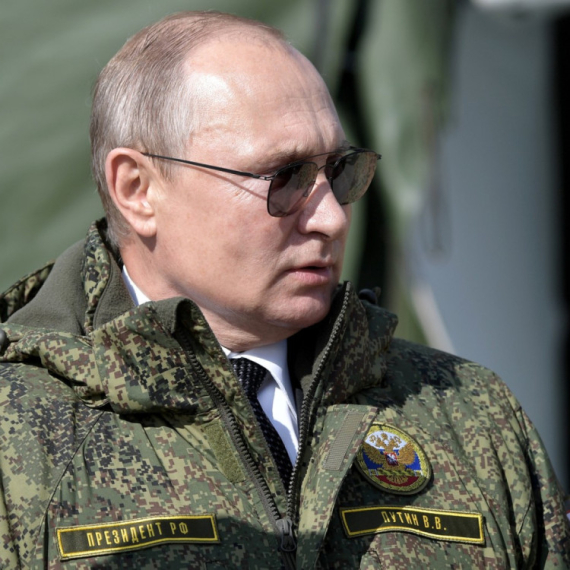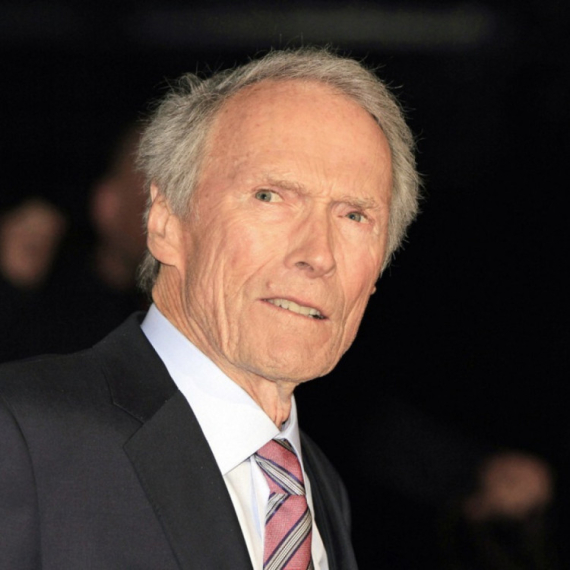Parties squabble over public enterprises
The parties of the ruling coalition, the DS and the DSS, have entered into a new row.
Monday, 24.09.2007.
15:17

The parties of the ruling coalition, the DS and the DSS, have entered into a new row. On top of disagreements over the coming elections, they are now in dispute over their role in the public enterprises. Parties squabble over public enterprises Experts feel that the choice of management for the public enterprises and those companies still under majority state-ownership should be depoliticized, meaning that the administrative boards should be selected via competitions. The parties of the governing coalition have been debating the issue of division for the last three months. One hundred days have passed since the formation of the government, but there is still no end in sight to the struggle for control of the various companies. As a result, party representatives appointed by the previous government continue to fill the leading positions. The Democratic Party of Serbia (DSS) thus has their men at the helm of twelve companies, including NIS, EPS, Transnafta and Telekom Srbija. According to the coalition agreement, New Serbia received two places: JP Putevi (Pulic Enterprise Roads) and Serbian Railways. G17 received thirteen, including Komercijalna Bank , Postanska Stedionica (Post Office), PTT, Srbijagas and Drzavna Lutrija (the National Lottery). The Serbian Renewal Movement (SPO) is still in charge of Jat Airways and the Belgrade Fair, while the Social Democratic Party (SDP) controls Sluzbeni Glasnik (The Official Serbian Gazette). Nemanja Nenadic from the Transparentnost Serbia watchdog says that the management of the public companies should be decided by a competition. "First, there’s the fact that the government appoints all three of the public enterprises’ bodies, which in itself isn’t functional; then, there is the additional point that no requirements have been envisaged in terms of professional qualifications for some of the functions; the final reason is that division of these companies, in its own way, most closely resembles a division of booty," says Nenadic. G17 feels that the notion of selecting the key people via a competition is a good idea, says party representative Suzana Grubjesic. "Party President Mladjan Dinkic has also put this initiative forward to the other coalition partners. Nothing has yet been agreed, but that doesn’t mean that our idea won’t be accepted in the end," she said. On the other hand, the DSS feels that, at a time when the country’s political scene is still being formed, it is necessary for party representatives to fill those posts. "We cannot immediately enter democracy at full steam, because we’re still not ready. It would be great if everything could be done by selection, but it’s simply impossible. Human society is such that the best people cannot always be everywhere, however much we’d like it to be so," said DSS Deputy Leader Dragan Jocic. Slobodan Milosavljevic from the Democratic Party (DS) says party representatives would have to comprise any commission that decided on the selection of the key posts. "It’s logical, because those are companies where the majority stakeholder is the government. Presumably, department ministers or ministry representatives who are interested in having concrete public enterprises," he said. Nenadic says that public enterprises are important for the parties, because unlike budgetary institutions, money that they earn is more disposable. "That’s why public enterprises can be a source of finance for the state in times of emergency at any given moment. However, there are frequently suspicions that public enterprises are abused for the sake of financing purely party needs," he said. There is speculation in the media that agreement over the enterprises’ new administrations will not be reached before New Year and the settlement of the Kosovo question. Allegedly, the DSS is in no rush, considering it is currently in control of over fifty percent of the governing boards, while G17 is trying to hang on to those companies it already has.
Parties squabble over public enterprises
Experts feel that the choice of management for the public enterprises and those companies still under majority state-ownership should be depoliticized, meaning that the administrative boards should be selected via competitions.The parties of the governing coalition have been debating the issue of division for the last three months. One hundred days have passed since the formation of the government, but there is still no end in sight to the struggle for control of the various companies.
As a result, party representatives appointed by the previous government continue to fill the leading positions. The Democratic Party of Serbia (DSS) thus has their men at the helm of twelve companies, including NIS, EPS, Transnafta and Telekom Srbija.
According to the coalition agreement, New Serbia received two places: JP Putevi (Pulic Enterprise Roads) and Serbian Railways. G17 received thirteen, including Komercijalna Bank , Poštanska Štedionica (Post Office), PTT, Srbijagas and Državna Lutrija (the National Lottery).
The Serbian Renewal Movement (SPO) is still in charge of Jat Airways and the Belgrade Fair, while the Social Democratic Party (SDP) controls Službeni Glasnik (The Official Serbian Gazette).
Nemanja Nenadić from the Transparentnost Serbia watchdog says that the management of the public companies should be decided by a competition.
"First, there’s the fact that the government appoints all three of the public enterprises’ bodies, which in itself isn’t functional; then, there is the additional point that no requirements have been envisaged in terms of professional qualifications for some of the functions; the final reason is that division of these companies, in its own way, most closely resembles a division of booty," says Nenadić.
G17 feels that the notion of selecting the key people via a competition is a good idea, says party representative Suzana Grubješić.
"Party President Mlađan Dinkić has also put this initiative forward to the other coalition partners. Nothing has yet been agreed, but that doesn’t mean that our idea won’t be accepted in the end," she said.
On the other hand, the DSS feels that, at a time when the country’s political scene is still being formed, it is necessary for party representatives to fill those posts.
"We cannot immediately enter democracy at full steam, because we’re still not ready. It would be great if everything could be done by selection, but it’s simply impossible. Human society is such that the best people cannot always be everywhere, however much we’d like it to be so," said DSS Deputy Leader Dragan Jočić.
Slobodan Milosavljević from the Democratic Party (DS) says party representatives would have to comprise any commission that decided on the selection of the key posts.
"It’s logical, because those are companies where the majority stakeholder is the government. Presumably, department ministers or ministry representatives who are interested in having concrete public enterprises," he said.
Nenadić says that public enterprises are important for the parties, because unlike budgetary institutions, money that they earn is more disposable.
"That’s why public enterprises can be a source of finance for the state in times of emergency at any given moment. However, there are frequently suspicions that public enterprises are abused for the sake of financing purely party needs," he said.
There is speculation in the media that agreement over the enterprises’ new administrations will not be reached before New Year and the settlement of the Kosovo question.
Allegedly, the DSS is in no rush, considering it is currently in control of over fifty percent of the governing boards, while G17 is trying to hang on to those companies it already has.
























Komentari 0